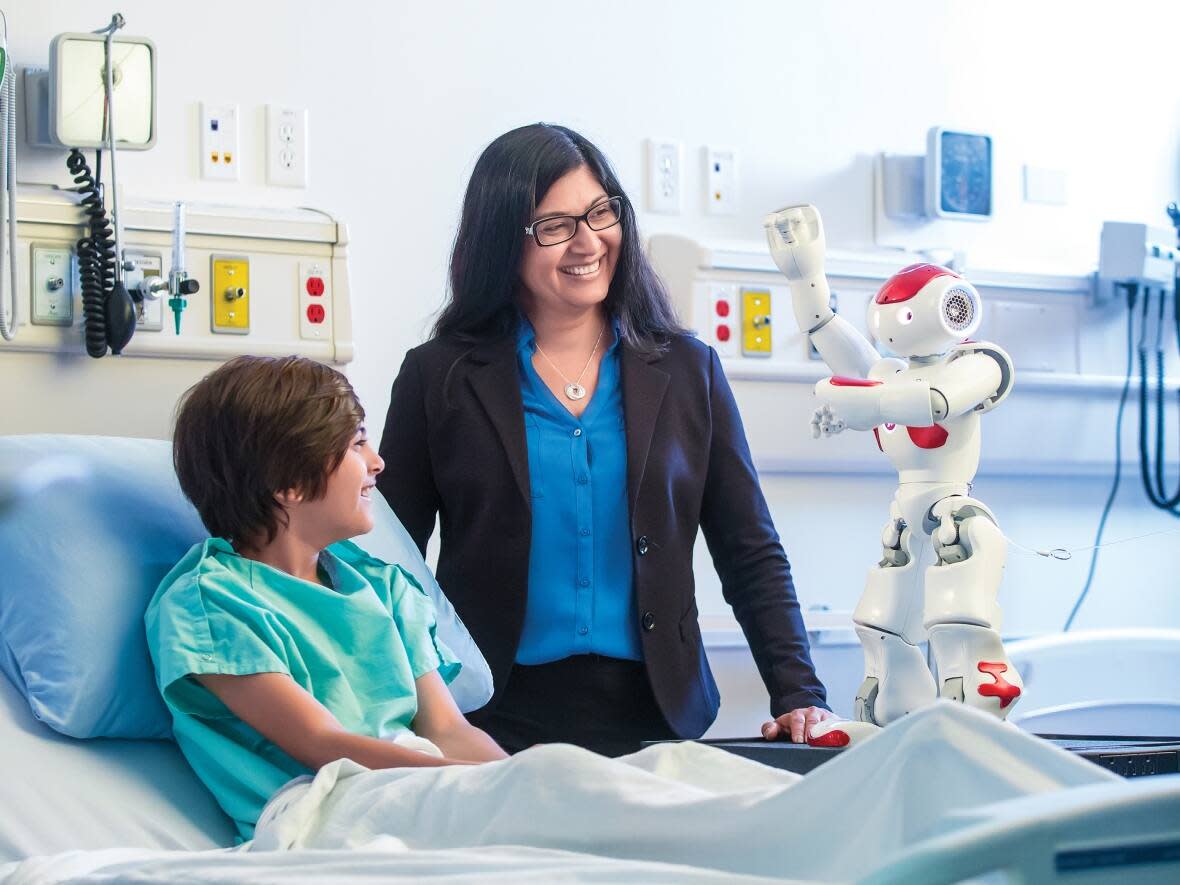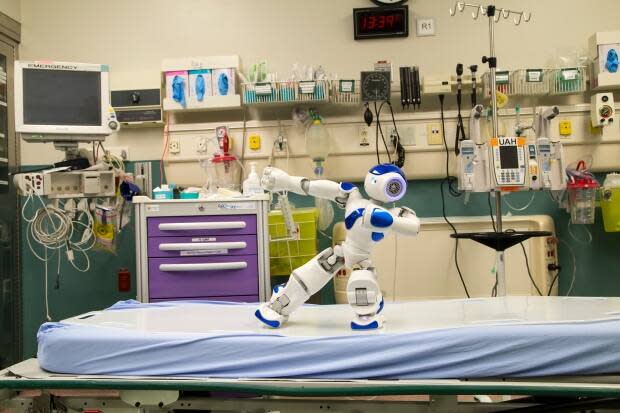Edmonton researcher helping develop a robot to help children in hospital manage pain

After seeing some success alleviating children's pain using a basic robot during procedures, the Stollery Children's Hospital is working toward a more advanced, responsive version to better help their young patients manage pain.
The original robot, called MEDi robot (Medicine and Engineering Designing Intelligence), was introduced in 2017 and came pre-programmed to perform certain functions, like sing, guide meditations, dance and tell jokes.
The move is part of research conducted by Dr. Samina Ali, a pediatric emergency physician and research director for pediatric emergency medicine at the University of Alberta. The new research aims to look into ways to make the experience less painful and less stressful for children at the hospital.
"It was the same seven minutes of interaction no matter what was going on in the room," Ali told CBC's Edmonton AM on Tuesday, adding that the old robot would also occasionally glitch.
The one they are currently working on will be more responsive.
"The robot will do some facial recognition stuff and work and speech recognition work to figure out how to react if the child is upset or not engaged," she said.
The programming of this new robot started in 2020 and is a collaboration between four universities in Canada: University of Alberta, Toronto Metropolitan University, McMaster University and University of Toronto. Two universities in Scotland are also involved: University of Glasgow and Heriot-Watt University.
Together they are working on the AI, ethics and use in health care to help children admitted in hospitals.
Mary Ellen Foster, senior lecturer in human robot interaction at the School of Computing Science at the University of Glasgow, said they are not building a new robot, but rather programming the same MEDi robot.
"We're building the brain of the robot," she told CBC from Glasgow on Wednesday.
Foster said the robot will use visual cues through a camera installed to notice the movement of the child and will make decisions accordingly.
The software they have developed so far still requires a research assistant to sometimes jump in and help the system better understand what's going on in the room.
"What we are doing is telling the robot here is what's happening right now and then the robot will decide what to do," she said.
By the end the robot will do the analysis on its own too.
Foster said a prototype of the robot is almost complete and is being tested on subjects — including her own child.

Pain management in children
Ali's research looking into pain management for children admitted to hospitals began in 2010. For the first four years, she conducted surveys and reviews to figure out how pain is treated among children in Alberta.
"Then once we figured out where the shortcomings were, we started developing individual studies to address those shortcomings," she said.
The hospital tested iPads and virtual reality technology in the past but found that robots were the most successful at calming children.
"While iPads are a fantastic distraction and keep children busy in normal times when they are really, highly stressed, it seemed that they didn't work as well in the emergency department for painful procedures," Ali said.
When they introduced a robot in 2017, they found that children had less distress during IV insertion, a procedure most children find to be quite painful, Ali said.
In 2019, Ali applied for the Canada UK Artificial Intelligence Initiative, a federal program that provides grants for research and development of AI technology and its implementation in society, to help develop this socially responsive robot.
It was approved in 2020 and the first clinical trials for the newly programmed robot will begin summer 2023.


